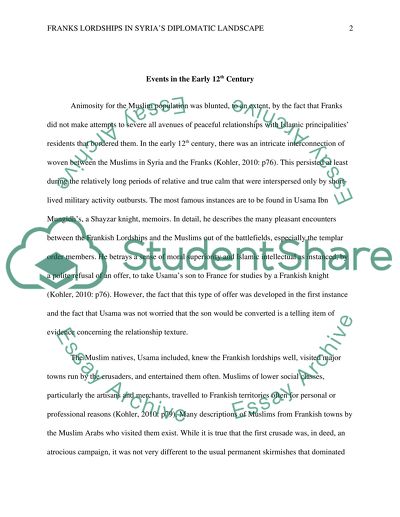Cite this document
(“Franks Lordships In Syria's Diplomatic Landscape Essay”, n.d.)
Franks Lordships In Syria's Diplomatic Landscape Essay. Retrieved from https://studentshare.org/history/1475855-franks-lordships-in-syrias-diplomatic-landscape
Franks Lordships In Syria's Diplomatic Landscape Essay. Retrieved from https://studentshare.org/history/1475855-franks-lordships-in-syrias-diplomatic-landscape
(Franks Lordships In Syria'S Diplomatic Landscape Essay)
Franks Lordships In Syria'S Diplomatic Landscape Essay. https://studentshare.org/history/1475855-franks-lordships-in-syrias-diplomatic-landscape.
Franks Lordships In Syria'S Diplomatic Landscape Essay. https://studentshare.org/history/1475855-franks-lordships-in-syrias-diplomatic-landscape.
“Franks Lordships In Syria'S Diplomatic Landscape Essay”, n.d. https://studentshare.org/history/1475855-franks-lordships-in-syrias-diplomatic-landscape.


